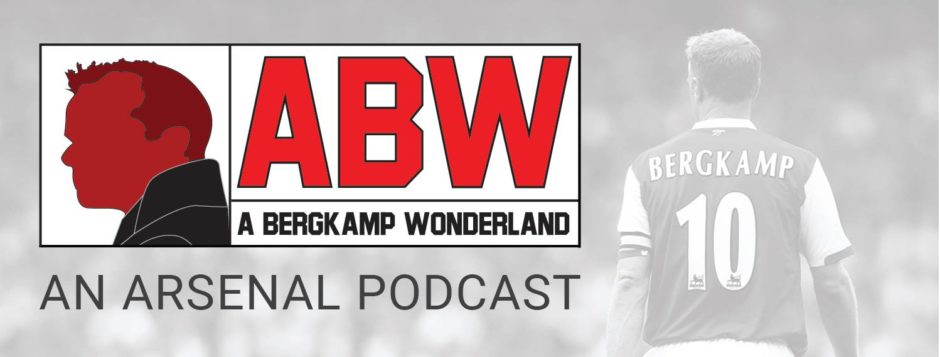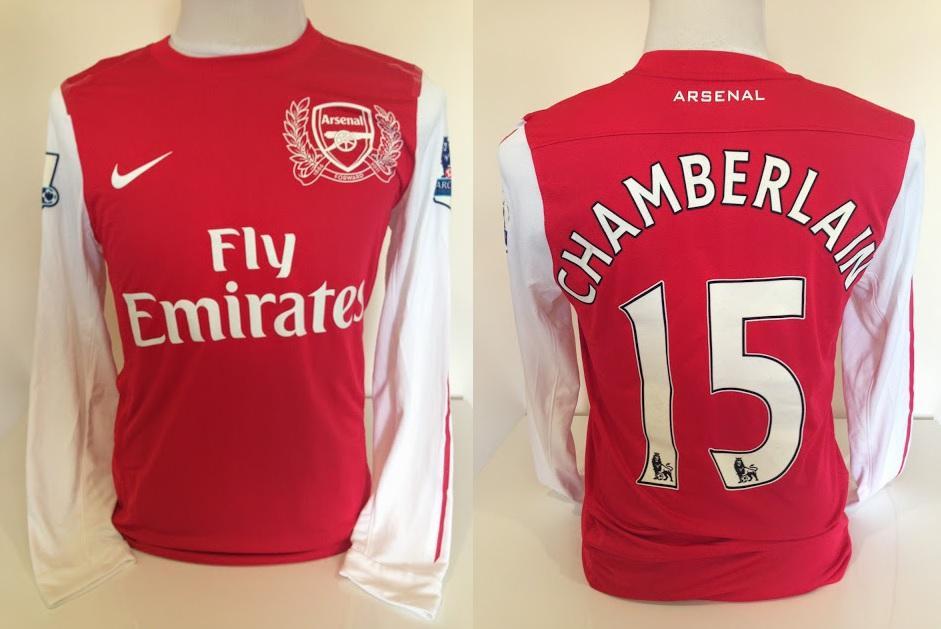By The Other Geoff (@Hollefreund)
What’s the value of beer?
With one simple question, I’ve managed to summarize my entire University experience. My degree was in economics but most certainly my major was in beer. Friends from my University days tell me I had a good time and I’m inclined to believe them since my memory of that period is…well…it’s about as good as a dodgy Eboue challenge in the 102nd minute.
Every now and then though, out of the ethereal mists of remembrance, I have a vague recollection of debaucherous pub crawls: dressed like Spengler from Ghostbusters, trudging from pub to tiny pub with similarly attired fancy-dress friends, completely shattered drunk, and looking to meet my very own Dana Barrett; or steal something. Yes, definitely steal something.
It was always the most trivial items I was after too. Traffic cones, rolls of toilet paper, the free peanuts they give all patrons. Picture, if you will, a completely intoxicated Dr. Egon Spengler running down the middle of main street shouting obscenities and holding two traffic cones and a roll of toilet paper aloft like it was the FA Cup. That’d be something not even Gozer would mess with.
I’m glad that some memories are only fleeting.
I also remember a little bit about economics: nothing truly useful, just snippets about utility and opportunity cost, scarcity and surplus – really just enough to bore all of you into submission. Sometimes a term or statement will jar fresh thoughts into the old macroeconomic memories. The most recent of such, have been on the concept of market price and market value.
It all really started this summer when I read about the transfer of Ross McCormack from Leeds to Fulham for a fee believed to be in the neighborhood of £11 million*. Crikey, that got my attention. Don’t get me wrong, McCormack was an absolute standout in the Championship last season scoring 29 goals and being named the league’s top scorer. But £11 million for a 27 year old who has only scored 2 senior goals for Scotland seems a wee high, doesn’t it?
If you’ve yelled “YES!!!” at your screen just now then we’re on the same page.
The purpose of this anecdote is not to point out that I dislike Ross McCormack, but rather to investigate why we feel so strongly when a club overpays (in our estimation) for a player in the transfer market. Every time this happens, I see a great many people eager to point out that the value of the player is equal to whatever the fee that was paid – in those terms; Ross McCormack’s value is £11 million.
Hang on, what?
There is actually an economic subtlety that is getting missed by these folks when they make this argument. It’s a sound textbook argument, undoubtedly, that market value and market price are the same thing BUT, and this is a big BUT, that statement is only true under conditions of market efficiency, equilibrium, and rational expectations. In other words, in a perfect, rational and sane marketplace, value and price are one and the same.
Heh.
There are words that I could use to describe the transfer market but sane, rational, and perfect are not even close to my dear lexicon. This is a market influenced by oligarchs, Financial Fair Play, European and Global Economies, Vincent Tan’s pants, Puma kit deals, Spanish League duopolies, Jose Mourinho’s whims, and various forms of Liverpool paying way too much for bang average players.
When the little boy inside us yells “Manchester THEY’VE PAID TOO MUCH,” we’re probably not far off. Yes, we might be going on instinct, but player value can be somewhat determined using various factors including age, nationality, injury history, current league, future potential, ability to grow a beard, position, statistics, temperament, number of times they’ve been caught with under age prostitutes, etc, etc… I could go on and on.
What we’re really saying is that price paid (which you can’t argue about unless it’s “undisclosed”) does not equal the market value of player (which you can argue because of the pure silliness of the transfer market). In these situations, the club has valued the player higher than the market would have valued that same player – and has thus paid a price higher than what normally would have been paid. The Winner’s Curse if you will (thanks @ChrisRPort), where winning bidders pay more than other clubs because of over-evaluation.
If you want a pretty good barometer for market value, the excellent transfermarkt.co.uk lists estimated market value for a player and while it may not be 100% accurate for every player and situation, I find it is generally a good touch point in gauging value versus price.
If you’re still with me, you’ve just read shy of 800 words and I haven’t mentioned Arsenal once. Even for me that’s a new record (although I’ve hinted quite purposefully via mention of Eboue, the FA Cup, Puma Kit deals, and a thinly veiled slight of the Skunt).
Do you know who else knows a bit about economics – ok, let me be clear here, I am not attempting to compare myself to him – that shouldn’t be your take away from that question. This is, though, quite clearly a set-up.
If you answered Adam Smith, you’re technically correct however I was going for our manger, Le Professor. Arsene Wenger has a degree in Economics. When you drape that degree over the transfer market like a velvet robe on George Costanza , and you start to look at market price and market value, something rather interesting happens.
Go to Google and search “arsene wenger overpays” in the search bar. Did you get over 4 million results? Good, me too. What started for me as a search for a quote from (or about) Arsene on overpaying for players produced that superfluity of outcomes. He likes to talk about overpaying for players. He likes to talk about overpaying for players a lot. From Chelsea, to Man City, to Financial Fair Play, there are endless stories, quotes, blogs, and interviews on Wenger and overpayment.
In economic terms, what Arsene is saying is that these transactions are mismatches between valuation and price; and those are terms, as Arsenal fans, we’re all too familiar with. It’s unsurprising then, that Arsene gets some incredible deals in the transfer market, and rarely goes big for a player (recent excesses aside). Wenger understands the relationship between market value and price and typically will only pay the valuation (or lower if he can get it).
His achilles heel of course is the case for future value – he likes a promising youngster. In Calum Chambers, Theo Walcott, Aaron Ramsey, and Alex Oxlade-Chamberlain, it could be argued that he was paying on the promise, and anticipation of future value. Leaving aside the British premium, all four were young, recently in their respective first-teams, and showing tremendous potential. But they also represented calculated risks. That case for unfulfilled potential is best served by the 19 year old Abou Diaby who was purchased from Auxerre for a little under £3 million in 2006; and despite that relatively small price compared to the others, has ultimately not lived up to what Arsene saw in him. For the record, I’m still hopeful that Abou fulfills that potential for the Arsenal.
The Mull of Kintyre rule, for those unaware, was a rumoured guideline formerly used by the British Board of Film Classification (BBFC) to compare and rate movies where men’s genitals were seen. I’m not going into details, you folks are all very adept at finding out more information if you so choose.
But I bring up this rule for two reasons: one, it’s not unlike the unspoken rules that Arsene quite obviously employs in the transfer market. I say unspoken but what I really mean is, not public – just like the Mull of Kintyre rule. And two, I made a promise to our friend Danny the GFP (@The_GFP) that I would mention the Mull of Kintyre rule in this very blog. Done and done.
Arsene is a rarity in football. He’s a man who obstinately sticks to his principles and spends Arsenal’s money as if it were his own. He follows his own rules. The yardstick for player evaluations, like the Mull of Kintyre rule, is adhered to stringently and often his fiscal beliefs are justified.
There’s something quietly reassuring about a manager that doesn’t spend £36 million on Andy Carroll. He’s a manager who assesses value and price and makes informed, and sometimes agonizingly stubborn, decisions. I think I’m okay with that; which is more than I can say about my ephemeral memories of drunken, Uni-based, ghost-fighting pub crawls.
You know it!
The Other Geoff (@Hollefreund) Dr. Egon Spengler
*I used figures in this blog that are reported on transfermarkt.co.uk

